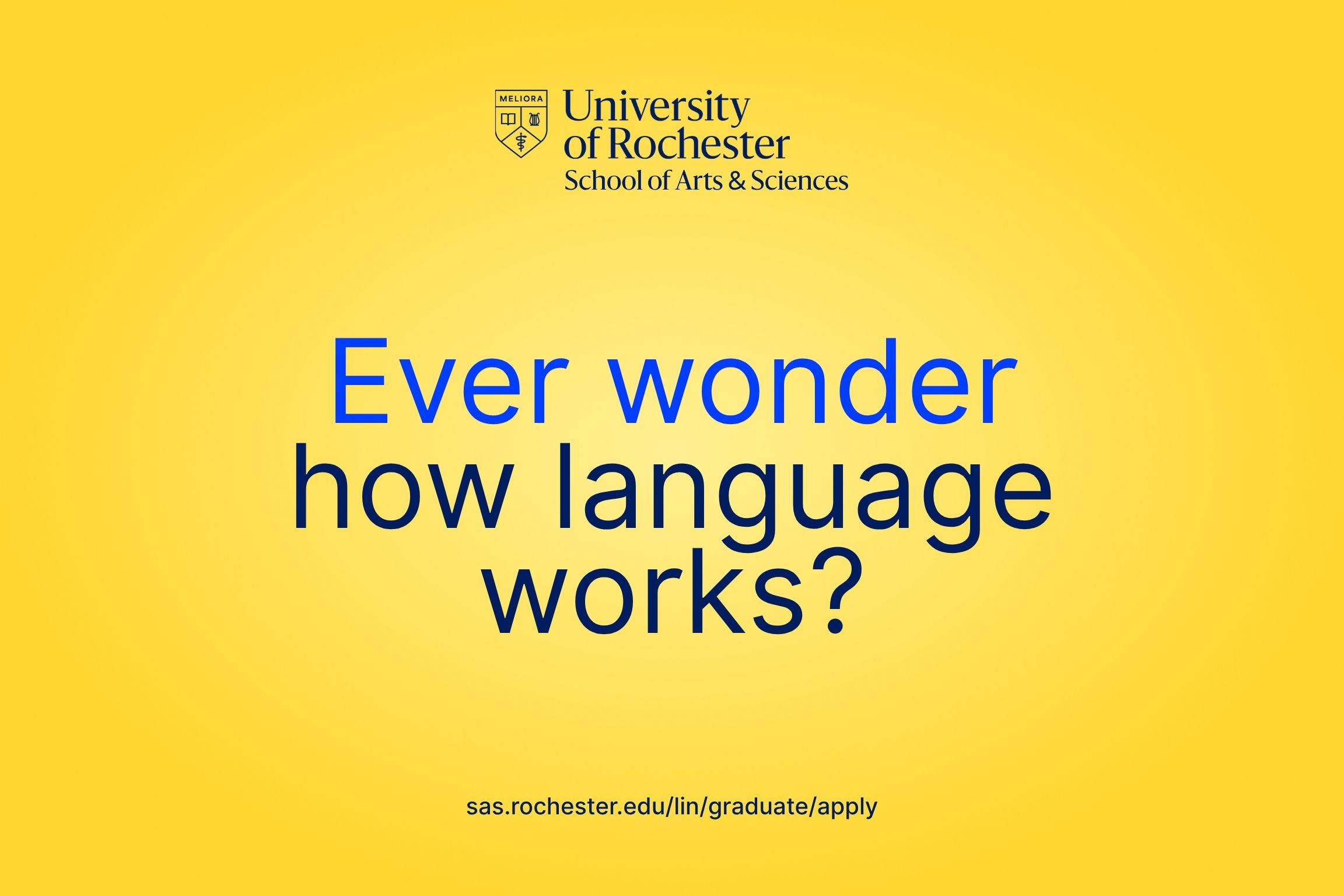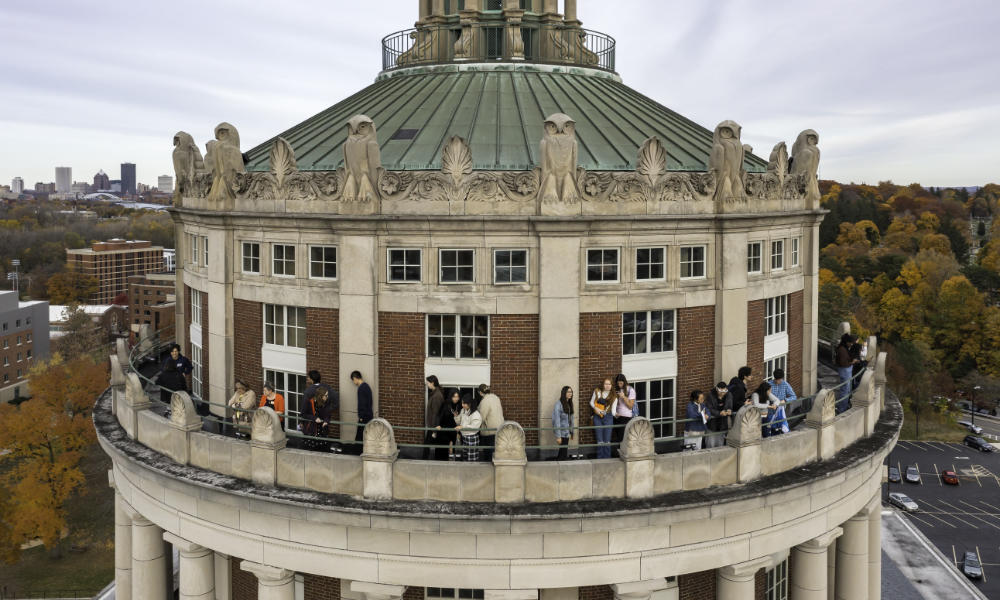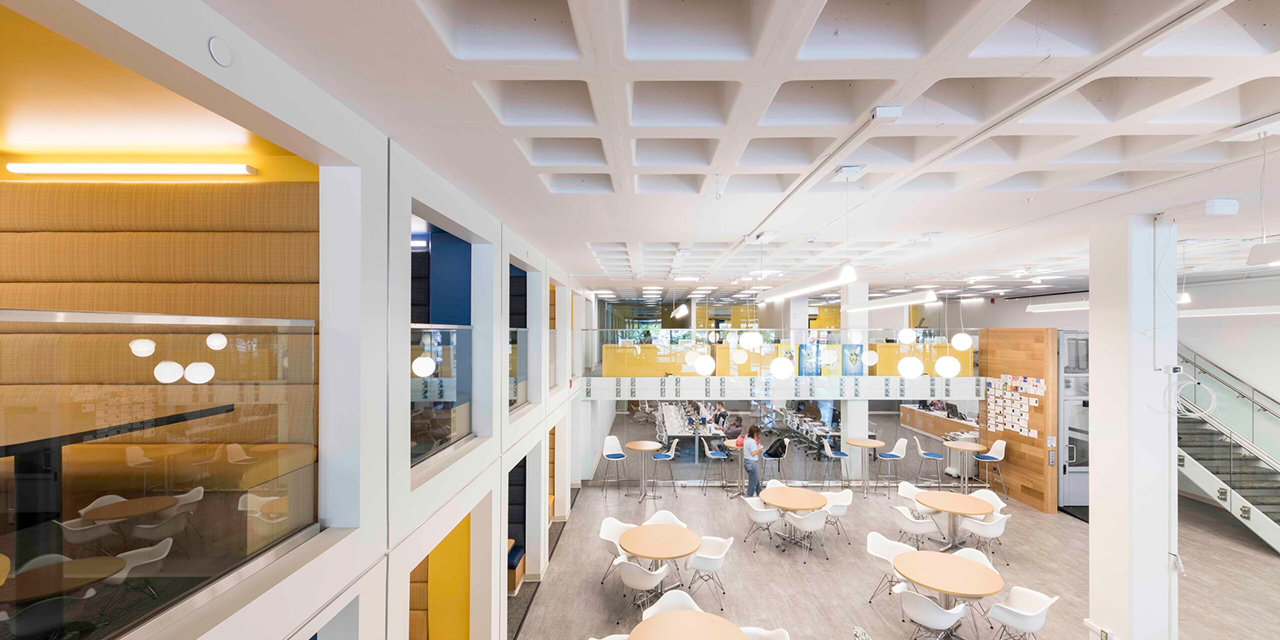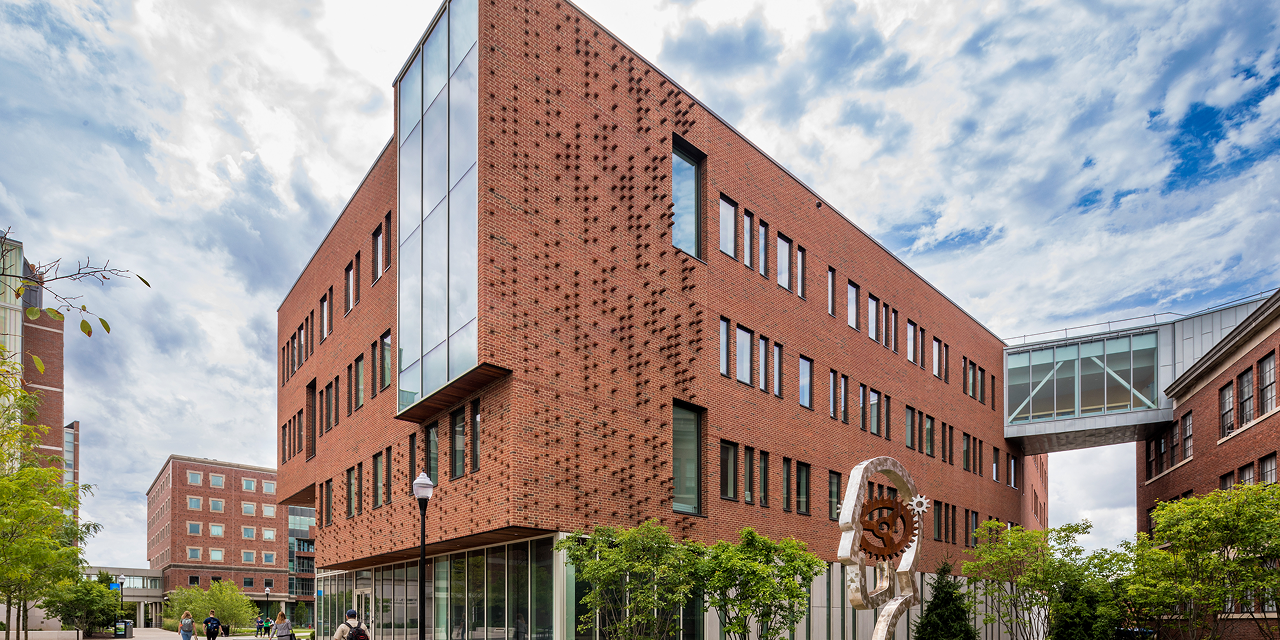Homepage
Undergraduate Studies
We offer several programs of study that provide both a solid foundation in the discipline of linguistic analysis as well as the opportunity to pursue independent research. Undergraduates may pursue a Bachelor of Arts or minor in Linguistics.
Graduate Studies
Learn about our cross-disciplinary PhD program in Linguistics and our three Master's programs: Master of Arts in Linguistics, Master of Arts in Language Documentation and Description, and Master of Science in Computational Linguistics.
Our Research
Linguistics research at Rochester is dynamic, diverse, and deeply interdisciplinary. With active research labs and wide-ranging collaborations, we're pushing boundaries and asking big questions about how language works and why it matters.

Feature Story
Applications Open for Fall 2026 Graduate Admission in Linguistics
The Department of Linguistics at the University of Rochester is now accepting applications for Fall 2026 entry to its four graduate programs: PhD in Linguistics, MA in Linguistics, MA in Language Documentation and Description, and MS in Computational Linguistics.
Continue ReadingUpcoming Events
- Singular they and the syntax of townhouses
Karlos Arregi, University of Chicago
October 24 - Unreserved Omnibus
Speaker TBD
November 7 - Unreserved Omnibus
Speaker TBD
November 7
What's Linguistics?
The field of linguistics explores the nature of languages, seeking to describe what human languages are like, how languages develop and change, and how people learn and use language. Unlike courses in a language, where the point is to gain an automatic, unconscious ability to use the language, courses in linguistics attempt to develop a fully explicit, scientific theory of how language works. Linguistics thus offers a unique combination of humanistic and scientific concerns.
Recent News
Featured Courses - Spring 2026
Check out some of our featured courses for the upcoming Spring 2026 semester. For a full and updated list of Linguistics courses, explore our course catalog.

LING 107 Language and Landscape: Water is Life
Water is on track to be the most pressing environmental issue in the upcoming decades. But beyond its physical substance, what is water? How do we understand its value in our lives? Who controls it? This course will focus on the language and landscape of water, its geography and physical presence...
Explore Linguistics Courses
LING 110 Intro to Linguistic Analysis
This course introduces students to the study of the structure of human language. We will cover the six core areas of linguistic investigation: Phonetics (articulation, acoustics, and perception of speech sounds), Phonology (sound patterns), Morphology (internal structure of words...
Explore Linguistics Courses
LING 228/428 Lexical Semantics
In this course we investigate the study of word-meaning in current linguistics and cognitive science. We examine the meanings of lexical items such as verbs, nouns, adjectives, and prepositions, and also other categories of words, including various function words and discourse particles. We examine...
Explore Linguistics Courses
Center for Language Sciences
The Center for Language Sciences (CLS) is an organization at the University of Rochester that brings together faculty, postdocs, and graduate students who conduct research on any aspect of human language as a vehicle for active interdisciplinary work.
CLS fosters research and activities that reach across a very broad group of disciplines covering a wide research focus and range of interests. It's a continually evolving organization with a history of serving as a platform for training students and postdocs in interdisciplinary research and enhancing collaborations among members.
Read MoreContact Us
Get in Touch
For more information about the Department of Linguistics, our programs, our research, or our courses, send us an email.




